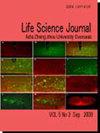Inter Group Perception and Experience Exploration in the Lives of Northeasterners NE in India
引用次数: 3
Abstract
Over the years, the importance of historically neglected North East (NE) India has gained momentum. Previous studies in Psychology have focused either on identity of NE people, migration, acculturation or prejudice. Research on perception of NE (Indian) people by non-NE people (Indian) and vice-versa has been scanty. The present study attempts to understand perception of Northeast (NE) students of India by non-NE students (primarily North Indian/ NI students staying in Delhi) using a sentence completion task. Participants consisted of female college students and research scholars; (N=30, mean age = 20.8 years). The study also takes into account the rising cases of racism against NE people in India during the COVID-19 pandemic. Results from the empirical study indicate a general and superficial understanding of NE by non-NE participants. Findings are overall positive, showing that educated and aware student community do not explicitly view NE through the lens of stereotype and prejudice. Yet subtle biases were present. On the contrary, a number of news reports point towards the incidences of prejudice and discrimination against NE people during the COVID-19 pandemic. The secondary data analysis clearly indicates the level of dehumanisation and discrimination that NE people are experiencing. Thus the study calls for more attention of researchers to dive deeper into these opposite trends and bring out the subtle forms of misperceptions to bridge the gulf between NE people and non-NE people. Results indicate that perhaps positive changes are happening only at explicit level, and at implicit level people still harbour negative perceptions and attitudes, which manifests during times of crisis. The findings have been explained with the help of Terror Management Theory.印度东北东北人生活中的群体间感知与经验探索
多年来,历史上被忽视的印度东北部的重要性日益增强。心理学先前的研究要么集中在东北人的身份认同、移民、文化适应或偏见上。关于非东北人(印度人)对东北人(印第安人)的感知以及反之亦然的研究很少。本研究试图通过句子完成任务来理解非东北学生(主要是留在德里的北印度/NI学生)对印度东北(NE)学生的感知。参与者包括女大学生和研究学者;(N=30,平均年龄20.8岁)。该研究还考虑到在新冠肺炎大流行期间,印度针对NE人的种族主义病例不断上升。实证研究的结果表明,非NE参与者对NE的理解普遍而肤浅。研究结果总体上是积极的,表明受过教育和有意识的学生群体并没有从刻板印象和偏见的角度明确看待NE。然而,存在着微妙的偏见。相反,一些新闻报道指出,在新冠肺炎大流行期间,对东北人的偏见和歧视发生了。二次数据分析清楚地表明了东北人正在经历的非人化和歧视程度。因此,这项研究呼吁研究人员更多地关注这些相反的趋势,并提出微妙的误解形式,以弥合东北人和非东北人之间的鸿沟。结果表明,也许积极的变化只发生在显性层面,而在隐性层面,人们仍然怀有负面的看法和态度,这在危机时期表现出来。这些发现已经在恐怖管理理论的帮助下得到了解释。
本文章由计算机程序翻译,如有差异,请以英文原文为准。
求助全文
约1分钟内获得全文
求助全文
来源期刊
自引率
0.00%
发文量
0
审稿时长
2-4 weeks
期刊介绍:
Life Science Journal, the Acta Zhengzhou University Oversea Version, is an international journal with the purpose to enhance our natural and scientific knowledge dissemination in the world under the free opinion/idea publishing principle. The journal is calling for papers from all the world. All the valuable papers or reports that are related to life sciences - in their broadest sense - are welcome. Other academic articles that are only certain relevant but are of high quality will also be considered and published. Papers submitted could be reviews, objective descriptions, research reports, opinions/debates, news, letters, and other types of writings. All submitted manuscripts will be sent for external peer review and processed the editorial work. After the peer review, the journal will make the best efforts to publish the accepted valuable articles as soon as possible. Let''s work together to disseminate our research results and our opinions/ideas.

 求助内容:
求助内容: 应助结果提醒方式:
应助结果提醒方式:


